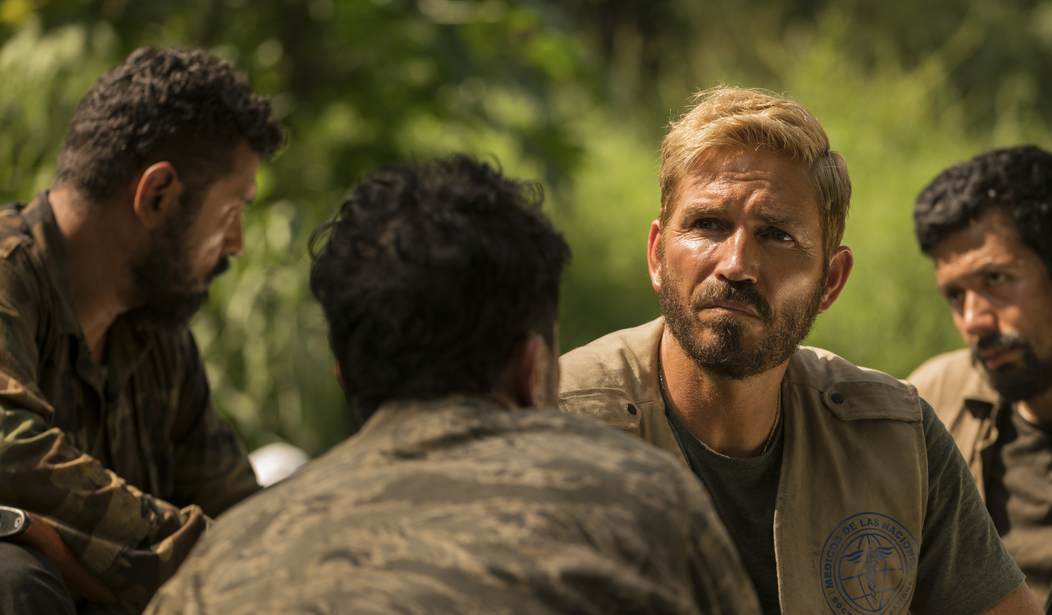The movie "Sound of Freedom" beat Indiana Jones at the box office Independence Day weekend. The budgets behind them do not compare, but David beat Goliath, and that's a blessing in the world today.
As you might know by now, "Sound of Freedom" is about the sex trafficking of children. Not exactly typical summer entertainment, and yet critical viewing. They did a good job of not showing too much, and yet, the topic itself is too much. I confess, I was grateful that I could watch it on my computer, pausing it and walking away at times.
Every instinct in us should recoil at the thought of people abusing children. But we have to know about it so we can do something.
Actor Jim Caviezel plays Tim Ballard, a real-life former Homeland Security agent and anti-trafficking activist. Both Caviezel and Ballard have been criticized for saying questionable things over the years, but I'm grateful for both: Caviezel did an excellent job in the movie, and Ballard helps children. They are doing more than I am. The movie strikes me as a wake-up call about something going on in the world -- and in America -- today.
"Sound of Freedom" has been attacked as alarmist right-wing propaganda. Rolling Stone attacked the movie as "a Superhero Movie for Dads With Brainworms." It preaches, "Dramatic raids may make for good entertainment, but in real life, the process of helping trafficking survivors is far more lengthy and complicated." Well, of course it is. "Sound of Freedom" is partially based on a dramatized version of Ballard, but it is not a documentary. Welcome to Hollywood.
Deb O'Hara-Rusckowski knows something about the real-life process of helping victims of trafficking. She is a critical-care nurse who co-founded Global Strategic Operatives for the Eradication of Human Trafficking, which trains professionals to recognize the signs of trafficking. Hundreds of thousands of people -- primarily in the medical field, but also security guards, parking attendants, airline workers and people in the hospitality industry --have been through the training. The medical community has been a priority because evidence shows that most trafficked girls and women wind up needing medical care -- perhaps for a broken bone from a beating or for a sexually transmitted infection.
Recommended
Vulnerability and desperation can lead girls and women into the arms of traffickers, and O'Hara-Rusckowski is currently working to open a safehouse in Massachusetts for survivors. She emphasizes that safehouses for trafficked boys are needed, too: "There's a particular shame they feel," she says, and they are in need of healing after they escape or are rescued.
One of the most jarring scenes in the film involves a former abuser describing the sadness he saw in his young victim's eyes, and how he realized that he was the cause of that sadness. He hadn't been thinking of the other person -- or that that other person was a child.
In the movie, that character goes on to help Caviezel's character set up a sting to free children from their captors. Some critics are saying that setting up such an event might contribute to the problem by "creating demand," but I have my doubts about how many people become drawn to such a thing overnight. And unfortunately, things we don't want to talk about, like pornography, are also gateways to such horrors.
What the critics miss is that "Sound of Freedom" provides an opportunity to talk about what's going on, and about how to better protect children. People like O'Hara-Rusckowski are doing that work. We need to support them.
Sex trafficking isn't a conspiracy theory. I wish it was. Children are being sexualized, and the consequences include grave evils most of us would rather not know about. But how can we look away? How can we dismiss the issue when the United Nations says there are 50 million people enslaved in the world today, millions of them children?
Ending the trafficking of children should unite us regardless of politics, religion or anything else. Adults must protect the innocent -- and their innocence. "Let freedom ring" cannot be a thing of the past.
(Kathryn Jean Lopez is senior fellow at the National Review Institute, editor-at-large of National Review magazine and author of the new book "A Year With the Mystics: Visionary Wisdom for Daily Living." She is also chair of Cardinal Dolan's pro-life commission in New York, and is on the board of the University of Mary. She can be contacted at klopez@nationalreview.com.)

























Join the conversation as a VIP Member